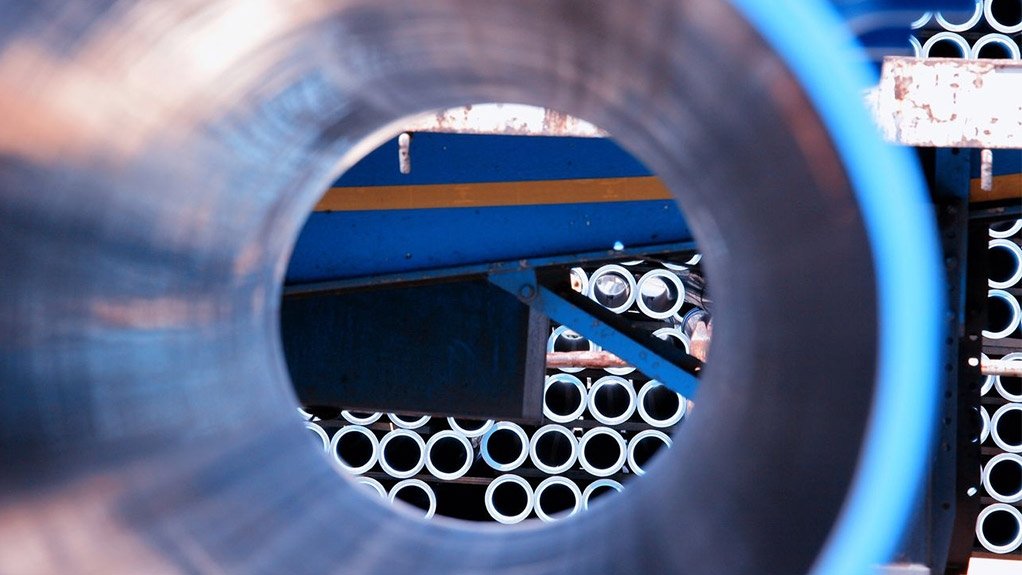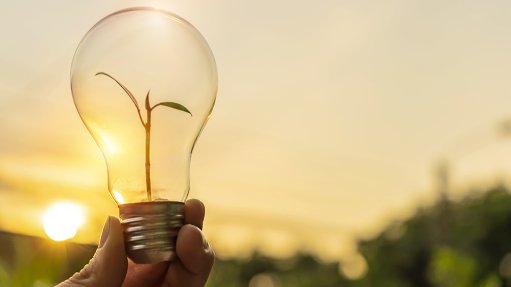Association pushes for water-saving solutions using plastic pipes



WATER PIPELINE UPGRADING PVC and HDPE pipes provide long-term water-saving solutions, reducing the impact of insufficient rainfall
JAN VENTER Sappma warns of more treated water losses if water pipeline infrastructure in not upgraded
The Southern African Plastic Pipe Manufacturers Association (Sappma) has been pushing for long-term water-saving solutions over the past four years by promoting the replacement of existing water pipeline network infrastructure, which comprises old cement, steel and asbestos pipes, with plastic pipes.
Sappma CEO Jan Venter says the association has been voicing its concerns about water leaks and the severe pollution of country’s water sources, as well as the lack of water infrastructure expected to support the rapidly increasing demand for water.
“Pipelines are at the heart of South Africa’s infrastructure and should be replaced before they fail, as water distribution, waste disposal, irrigation and telecommunications all rely on pipelines functioning,” he says.
Venter explains that two of the major causes of water loss are corrosion and poor jointing of pipes and that, for this reason, old steel or asbestos pipelines worldwide are being replaced with plastic pipe because of its excellent chemical and mechanical properties.
He explains that a lot of the country’s pipelines were installed more than 60 years ago, mostly using steel and asbestos cement piping.
Venter further notes that mega- litres of treated water are lost yearly and that, if municipalities were to spend their respective budgets on upgrading their pipeline infrastructure, enough purified water would be saved to significantly reduce the long-term effects of insufficient rainfall.
He explains that high-density polyethylene (HDPE) and poly- vinyl chloride (PVC) pipes are lightweight, easy to handle and join, and are available in a range of sizes and pressure ratings. These pipes also provide low frictional resistance and have hydraulic properties that remain virtually unchanged over their useful life, resulting in lower energy use and pumping costs.
“It is sad that matters have to become critical before people realise the precarious nature of a situation to take preventive measures,” he tells Engineering News.
Sappma estimates that it will cost several billion rands over the next 25 years to serve areas with growing populations and repair national potable water systems that are reaching the end of their life spans.
Venter says the association feels it is imperative to keep pushing not only for the country’s water infrastructure to be upgraded, but also for the education of consumers, engineers and other decisions-makers about the benefits of using plastic pipe instead of other materials. He warns that the number of water breaks and systems failures will increase if investments in water piping are not made.
Meanwhile, the recent drought that has gripped South Africa has prompted the Uthungulu district municipality to implement stringent water restrictions in KwaZulu-Natal following critically insufficient rainfall.
In July, water restrictions affected the Hazelmere dam in the province, which resulted in domestic and industrial water use being restricted by 30% and irrigation by 100%.
Irrigation from the Goedertrouw dam, also located in KwaZulu-Natal, was cut by 70%, domestic use was cut by 30% and industrial use by 10%.
Water Research Commission Report
A report released by the South Africa’s Water Research Com-mission, ‘Water Reconciliation All Town Study’, has shown that water resources in 30% of South African towns are already in deficit, with water resource shortages expected in another 13% of towns in the next one to five years and in a further 12% in the next five to ten years.
The commission also completed a survey in April 2015 of 132 municipalities in South Africa. The survey revealed that water loss through leaks, incorrect metering and unauthorised consumption comprised about 37% of the country’s available water supply.
This represents a financial loss of about R7.2-billion a year, says Venter, concluding that South Africa’s economy and quality of life are being undermined by issues such as compromised tap water quality, low fire-hydrant flows, flooding and sink holes.
Article Enquiry
Email Article
Save Article
Feedback
To advertise email advertising@creamermedia.co.za or click here
Announcements
What's On
Subscribe to improve your user experience...
Option 1 (equivalent of R125 a month):
Receive a weekly copy of Creamer Media's Engineering News & Mining Weekly magazine
(print copy for those in South Africa and e-magazine for those outside of South Africa)
Receive daily email newsletters
Access to full search results
Access archive of magazine back copies
Access to Projects in Progress
Access to ONE Research Report of your choice in PDF format
Option 2 (equivalent of R375 a month):
All benefits from Option 1
PLUS
Access to Creamer Media's Research Channel Africa for ALL Research Reports, in PDF format, on various industrial and mining sectors
including Electricity; Water; Energy Transition; Hydrogen; Roads, Rail and Ports; Coal; Gold; Platinum; Battery Metals; etc.
Already a subscriber?
Forgotten your password?
Receive weekly copy of Creamer Media's Engineering News & Mining Weekly magazine (print copy for those in South Africa and e-magazine for those outside of South Africa)
➕
Recieve daily email newsletters
➕
Access to full search results
➕
Access archive of magazine back copies
➕
Access to Projects in Progress
➕
Access to ONE Research Report of your choice in PDF format
RESEARCH CHANNEL AFRICA
R4500 (equivalent of R375 a month)
SUBSCRIBEAll benefits from Option 1
➕
Access to Creamer Media's Research Channel Africa for ALL Research Reports on various industrial and mining sectors, in PDF format, including on:
Electricity
➕
Water
➕
Energy Transition
➕
Hydrogen
➕
Roads, Rail and Ports
➕
Coal
➕
Gold
➕
Platinum
➕
Battery Metals
➕
etc.
Receive all benefits from Option 1 or Option 2 delivered to numerous people at your company
➕
Multiple User names and Passwords for simultaneous log-ins
➕
Intranet integration access to all in your organisation




















